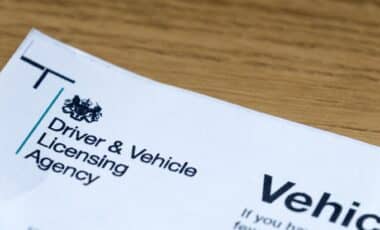The passage of the Universal Credit and Personal Independence Payment (PIP) Bill through Parliament has generated significant concern among benefit recipients regarding potential changes to their entitlements.
Many individuals feared that the reforms would disrupt access to crucial services and financial assistance.
However, the Department for Work and Pensions (DWP) has sought to reassure the public by confirming that some key benefits, often referred to as “passported benefits,” will remain unaffected by the new legislation.
These vital supports include the Blue Badge scheme, concessionary travel, and Carer’s Allowance, which provide essential assistance to many disabled people across the UK.
According to DevonLive, the DWP has revealed little detail on other aspects of the reforms.
What’s Changing With Pip Eligibility?
The welfare bill proposes changes to the eligibility criteria for Personal Independence Payment (PIP), which could potentially disqualify thousands of current claimants.
However, a crucial amendment was introduced just before the bill passed, ensuring that people currently receiving PIP will not lose their benefits, even if they are reassessed in the future.
This change also ensures that individuals receiving PIP will continue to qualify for other benefits associated with it, including Carer’s Allowance and the Blue Badge scheme.
Labour MP for Gravesham, Dr Lauren Sullivan, raised concerns about these changes, particularly regarding the impact on access to essential services like Blue Badges and bus passes.

According to the Daily Record, she asked:
“PIP is, of course, a passport to freedom for many other things such as the Carer’s Allowance, and many local authorities use PIP for Blue Badges and bus passes. Does the Secretary of State have a plan to mitigate the impact of the potential changes to PIP eligibility on access to Blue Badges and bus passes for disabled people?”
In response, Work and Pensions Secretary Liz Kendall confirmed:
“As I said in my statement, existing PIP claimants will continue to have that benefit. It will not be affected even if they have a reassessment, and neither will all the passported benefits. Carer’s Allowance is the best known. But all passported benefits will be included in that protection.”
Impact on ‘Passported Benefits’
The term “passported benefits” refers to additional support and discounts that individuals receive based on their eligibility for PIP.
These benefits include vital resources such as the Blue Badge (which helps people with disabilities park closer to their destinations), concessionary travel (which provides discounted or free bus passes), and Carer’s Allowance (which offers financial support to those caring for individuals with disabilities).
Despite concerns that the PIP eligibility changes could affect access to these services, Kendall’s reassurance that these benefits are protected comes as welcome news to many.
Those currently receiving PIP, including those who undergo reassessment, will continue to benefit from passported benefits as well.
Future of PIP Assessment Process
While these protections are in place for existing PIP claimants, changes to the PIP eligibility criteria will still be enacted by November. The revised criteria, which could potentially disqualify new claimants in the future, are part of a broader reform effort.
However, Sir Stephen Timms has been tasked with conducting a comprehensive review of the PIP assessment process in collaboration with disability groups and charities. This review is expected to be completed by Autumn 2026.
In the meantime, current claimants will be shielded from the impacts of these reforms, as the eligibility criteria will not change for them.
The DWP has clarified that the mobility element of PIP, which qualifies individuals for Blue Badges, will not be affected by the changes.
No Changes for Scotland’s Adult Disability Payment Recipients
The welfare reforms will not impact individuals in Scotland who receive the Adult Disability Payment (ADP).
This means that those in Scotland will continue to receive their Carer’s Allowance and qualify for Blue Badges or concessionary travel without any disruption, even if the changes to PIP eligibility are implemented in the rest of the UK.
Current Rates of PIP Benefits
At present, the enhanced rate of PIP mobility provides £77.05 per week, while the standard rate is £29.20 per week. For the daily living element of PIP, the lower rate is £73.90, and the higher rate is £110.40.
These rates remain unchanged for current claimants, with the last-minute amendment to the bill ensuring that existing claimants will not lose these benefits, even if they face reassessment.
The Department for Work and Pensions has made it clear that these rates will not change until the completion of Sir Stephen Timms’ review, which is set to guide future reforms to the assessment process.









